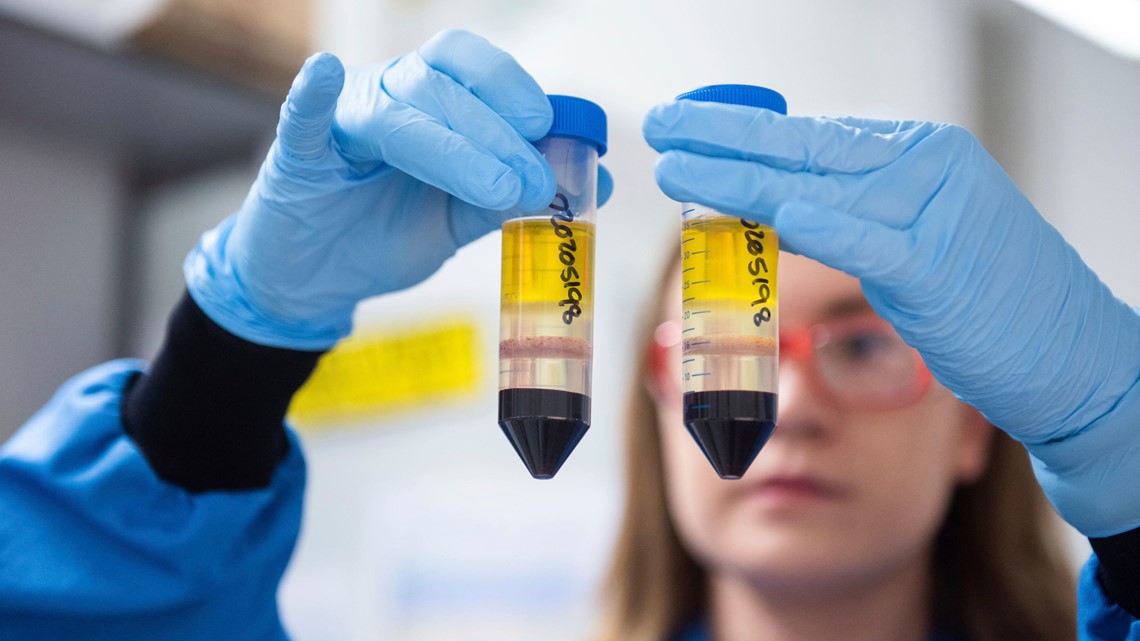A video posted on social media shows a woman supposedly reading off the label of the AstraZeneca COVID-19 vaccine and demonstrating to viewers her steps in researching what’s on it.
She contends that the coronavirus vaccine contains fetal "fragments," saying "this is a fact." But the head of the International Vaccine Access Center at Johns Hopkins University says it is not a fact and the woman is wrong.
THE QUESTION:
Do COVID-19 vaccines contain cells from a human fetus?
THE ANSWER:
No, according to Dr. William Moss with Johns Hopkins Bloomberg School of Public Health.
Of the three COVID-19 vaccines nearing Federal Drug Administration approval in the U.S., one has a distant tie to a fetal cell in its manufacturing, and the other two are from a new type of technology, says Dr. Moss, who heads the International Vaccine Access Center.
WHAT WE FOUND:
The video in question shows a woman, who does not identify herself, going through the label contents of what she claims is the AstraZeneca COVID-19 vaccine. She says her trail of research leads to lung cells of a male fetus aborted at 14 weeks' gestation.
Dr. Moss explained to VERIFY that the AstraZeneca vaccine "is derived from adenovirus grown in a kidney cell line that came from an aborted fetus in 1972."
A cell line comes from a cell that is replicated repeatedly, sometimes indefinitely, and used in the development of vaccines and for other scientific purposes. Moss says it is important to note that for the COVID-19 vaccine, "The virus is grown in a cell line that has grown in a laboratory for more than 40 years and not directly in fetal tissue."
The AstraZeneca vaccine, he emphasized, "does not contain fetal tissue."
For Roman Catholics, people who are pro-life and support anti-abortion measures and others possibly concerned about the shot’s contents, the Vatican’s Pontifical Academy for Life says the cell lines used in such vaccines "are very distant from the original abortions."
"We believe that all clinically recommended vaccinations can be used with a clear conscience and that the use of such vaccines does not signify some sort of cooperation with voluntary abortion," the academy says.


It also recognizes "the moral obligation to guarantee the vaccination coverage necessary for the safety of others."
The Pfizer and Moderna vaccines, also expected to receive FDA approval soon, use mRNA technology. According to the Centers for Disease Control and Prevention, "mRNA vaccines contain material from the virus that causes COVID-19 that gives our cells instructions for how to make a harmless protein that is unique to the virus.
"After our cells make copies of the protein, they destroy the genetic material from the vaccine. Our bodies recognize that the protein should not be there and build T-lymphocytes and B-lymphocytes that will remember how to fight the virus that causes COVID-19 if we are infected in the future."
Something you’d like to have VERIFIED? Click here to submit your story.

